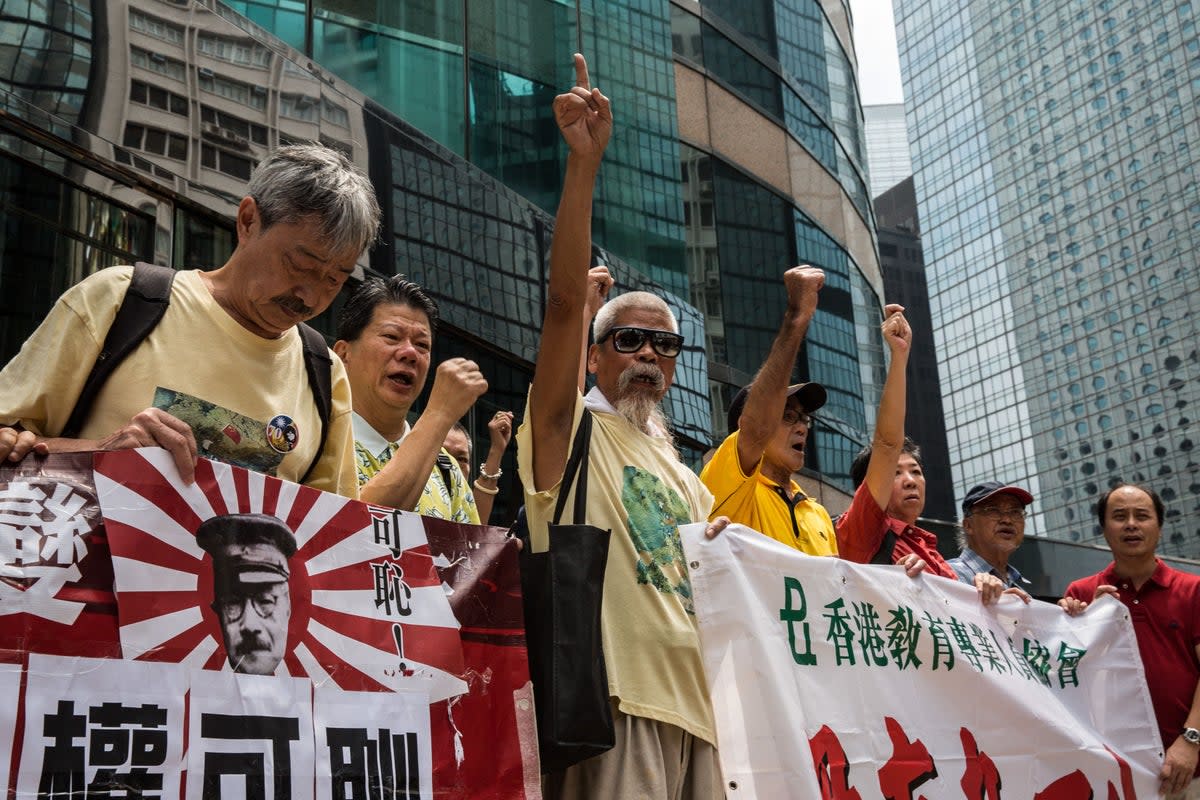Hong Kong activist with colon cancer convicted of sedition doesn’t mind ‘being a martyr’

Veteran Hong Kong activist Koo Sze-yiu, who has been sentenced to nine months in jail on sedition charges for planning a protest against Beijing, has said he doesn’t mind being a martyr in the fight for democracy.
“I don’t mind being a warrior for the democracy movement, and I don’t mind being a martyr for democracy and human rights,” the 75-year-old, who has terminal cancer, said before his sentencing on Tuesday, AFP reported. He added that getting jailed was a “part of my life”.
Koo was arrested after he announced plans to protest outside China’s liaison office in Hong Kong on the opening day of the 2022 Winter Olympics in February. He was detained hours before the protest on 4 February.
Koo had prepared a mock coffin and painted slogans such as “democracy and human rights are above the Winter Olympics”, “down with the Communist Party” and “one-party dictatorship”.
The longtime activist, who was diagnosed with rectal cancer in 2020, was charged with “attempting to do or making any preparation to do an act or acts with seditious intention”.
Principal magistrate Peter Law on Tuesday sent the 75-year-old to jail till April next year for breaching the colonial-era law of sedition, and said his actions amounted to endangering national security.
The slogans painted by Koo were not “pure criticism”, the magistrate said, adding that they carried the purpose of changing or even overthrowing China’s constitutional power, according to the Hong Kong Free Press.
Koo, he added, was a “veteran protester” and had spent money and effort on preparing for the demonstration. He “really looked forward to disseminating his messages and hoped some people would join”, the principal magistrate said, stating that the coffin “added to the insult”.
The magistrate added that the slogans were further provocative in light of the city’s protests in 2019.
The fierce activist had dubbed the national security law introduced by Beijing as an “evil” piece of legislation. Mr Law said this “undoubtedly weakened people’s confidence in the judicial administration” and added that the planned demonstrations could have sparked discontent against the central and Hong Kong government again.
People’s emotions in Hong Kong had not “stabilised” even as the country witnessed a return to stability after “large-scale collective unlawful events”, the magistrate added.
Further, Mr Law took issue with the timing of the protest, which was planned during the winter games, when Beijing was already dealing with “broad criticism” overseas.
Mr Law ruled that Koo’s planned protest would have “built up momentum” and echoed such criticism even though he was not directly associated with the groups and individuals opposing China as a host for winter games.
According to the activist’s lawyers, the planned demonstration was an exercise in free speech and the charges of sedition slapped on Koo were unconstitutional.
But the court dismissed it and said the prosecution did not have to prove an element of violence in the sedition charge as it is not always a factor.


